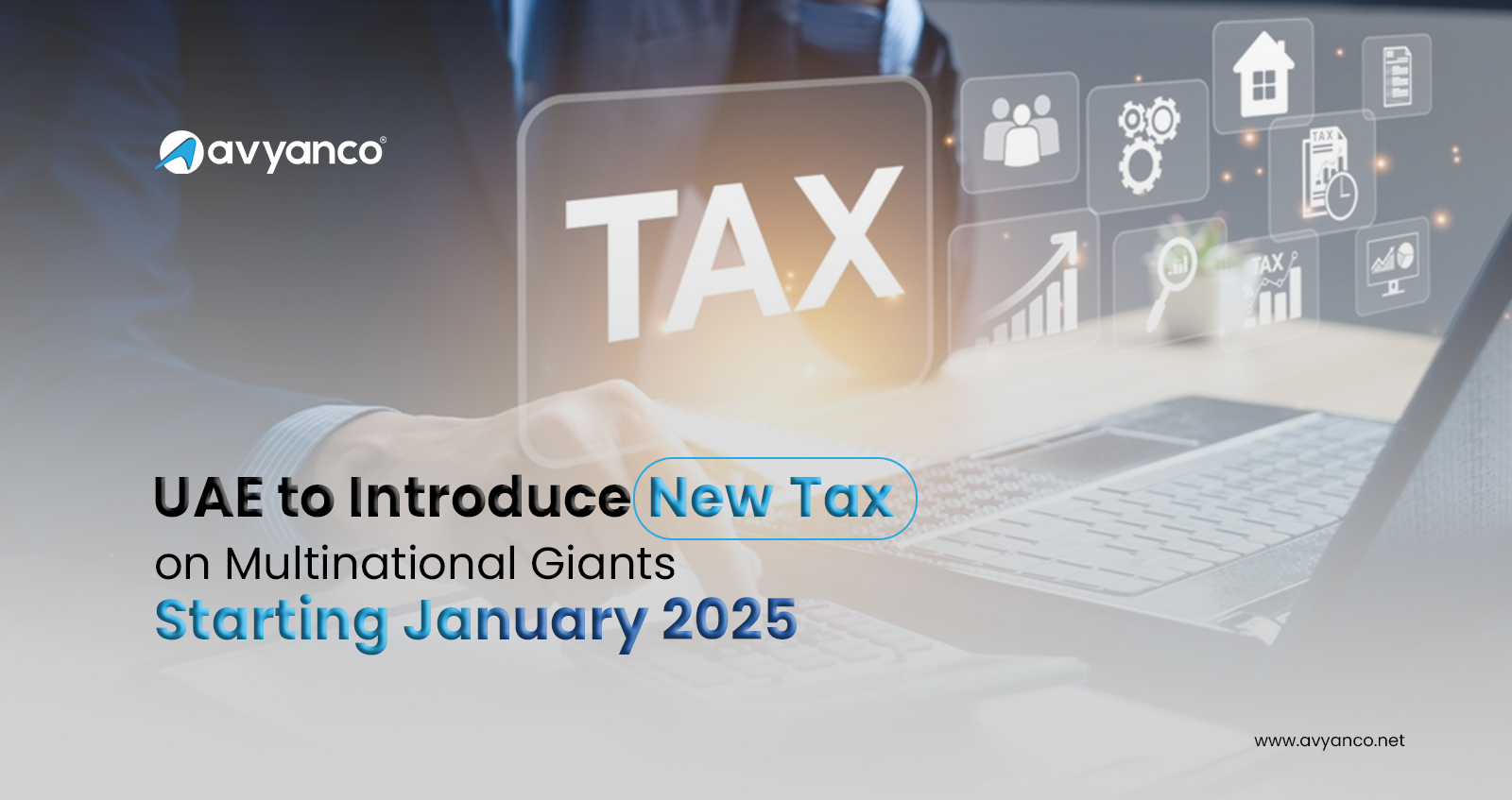
New Tax in UAE: Multinational Giants to Face Changes Starting January 2025
In a significant step toward aligning with global corporate taxation norms, the United Arab Emirates (UAE) is introducing a new tax in UAE, the Domestic Minimum Top-up Tax (DMTT), effective January 1, 2025. This measure is part of the UAE’s commitment to the Organization for Economic Co-operation and Development’s (OECD) global tax framework, which aims to establish fair and equitable taxation for multinational corporations worldwide.
By undertaking a view of the DMTT, the following is seen as an important tool to make sure that multi-national corporations pay a fair tax in the countries where they operate. Consequently, the UAE reaffirms its support for international tax changes, therefore, preserving the favorable climate for both domestic and foreign enterprises.
What Is the Domestic Minimum Top-up Tax (DMTT)?
The Domestic Minimum Top-up Tax (DMTT) is a tax that is applied to multinational corporations, provided they meet or exceed certain revenue milestones. The main reason behind this new tax is to have that minimum level of tax from those large international companies in the UAE to meet the OECD standards.
The tax will be applied to profits generated within the UAE by multinational companies that exceed a specified revenue threshold. This tax will complement the existing corporate tax in the UAE by raising the current standard corporate tax rate of 9% to a minimum of 15% of the profit in the country.
Who Will Be Affected?
The DMTT will apply to multinational enterprises that meet certain criteria. Specifically, the new tax will target companies with consolidated global revenues of over AED 2.91 billion in at least two of the last four financial years.
This implies that the international huge influential firms, which undertake their operations in numerous worldwide regions, for instance, America, would require re-considering their strategic financial frameworks as well as tax management. If your multinational company happens to fall under this revenue bracket, your company will be falling under the new rules that govern UAE tax and this means that your company will need to change some of the actions that it is participating in so as to fall under the requirements of UAE taxation law.
New Tax Rate and Its Impact
By implementing the DMTT the UAE will increase the current corporate tax rate from 9% to at least 15% for qualifying MNEs. This new tax rate is in compliance with the OECD’s global minimum tax rate of 15% meant to address tax evasion by big companies and guarantee all countries receive fair value from the multinational businesses.
While the 9% corporate tax rate previously provided the UAE with a competitive edge for businesses looking for low-tax environments, the introduction of the DMTT brings the country closer to global standards, ensuring that multinational companies contribute equitably to the local economy.
This implies that all organizations functioning across more than one country must take some time and review their tax structure, financial forecasts, and models to accommodate the new tax in UAE. There will be effects on certain businesses, particularly those enjoying the low corporate tax rates typically associated with the UAE. However, it is crucial to note that the proposed new tax will help level the playing field for MNCs throughout the globe.
Why Is This Move Significant?
The implementation of the DMTT in the UAE shows that the country supports the principles of international tax reform and the development of corporate taxation transparency. Thus, by following the OECD’s approach, the UAE positions itself as a responsible player in the global tax landscape, taking proactive steps to prevent tax avoidance practices commonly seen in some multinational corporations.
It will also be simultaneously anticipated that the DMTT as an implementation consideration will yield a favorable impact on the business environment competitiveness within the UAE. Through equalizing the tax rates around the globe the UAE tries to level the playing field for the businesses located in the region with their global counterparts.
Moreover, this move signals that the UAE is working towards a more sustainable economy by ensuring that large corporations contribute fairly to public finances. This is expected to have long-term benefits for the country’s infrastructure, social programs, and economic stability.
What Does This Mean for Multinational Corporations?
This new tax in UAE is going to affect multinational corporations doing business because it will force them to do a complete overhaul of their current taxation policies. A new 15 % tax rate is likely to be the toughest for organizations to deal with since they will need to go over the entire company’s organizational structure and closely evaluate all their working processes to determine whether they correspond to the new tax rate within the permitted areas, which may undoubtedly affect their profitability and financial plans.
Companies should also look at the broad ramifications of this scheme. Due to taxation measures with tax rates equal to the OECD average, MNEs could also be faced with similar tax rates in other states, and therefore mining shifted profits to low-tax countries.
How Avyanco Can Help You Navigate the Changes
As the UAE introduces the DMTT, it is crucial for multinational companies to prepare for the changes and adjust their strategies accordingly. At Avyanco, we specialize in providing tax consultancy and financial planning services to businesses operating in the UAE. Our team of experts can help you navigate the complexities of the new tax regulations and ensure compliance with the DMTT.
We can assist you with tax strategy development, financial planning, and compliance audits to ensure you’re ready for the tax changes ahead.
Contact us today for more information or to schedule a consultation to discuss how these new regulations might impact your business and how we can help you adjust your tax strategies for 2025 and beyond.

